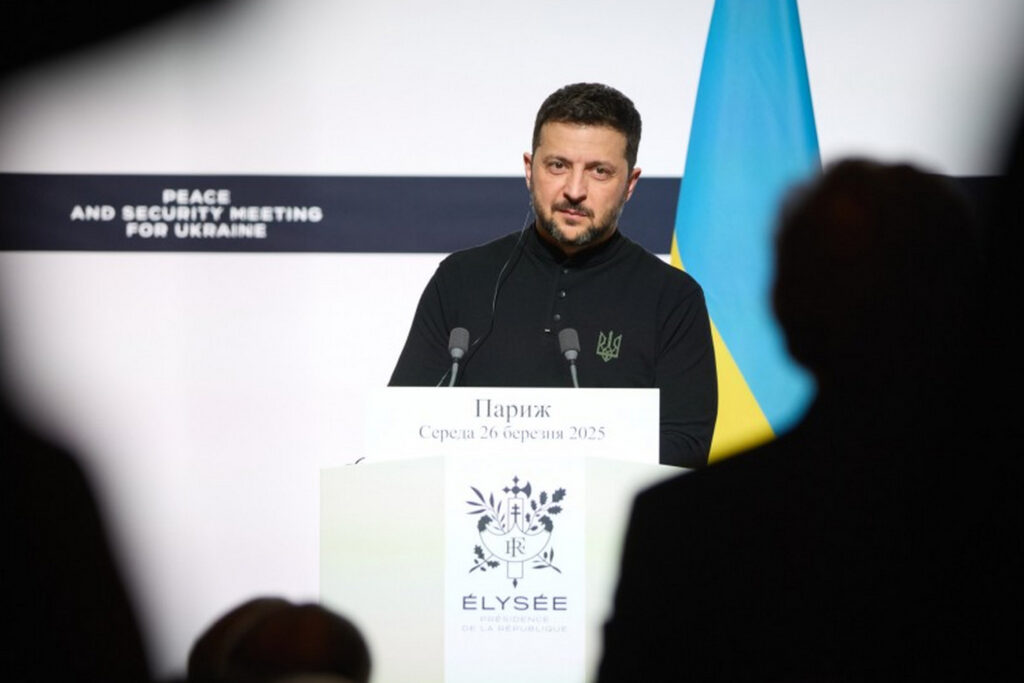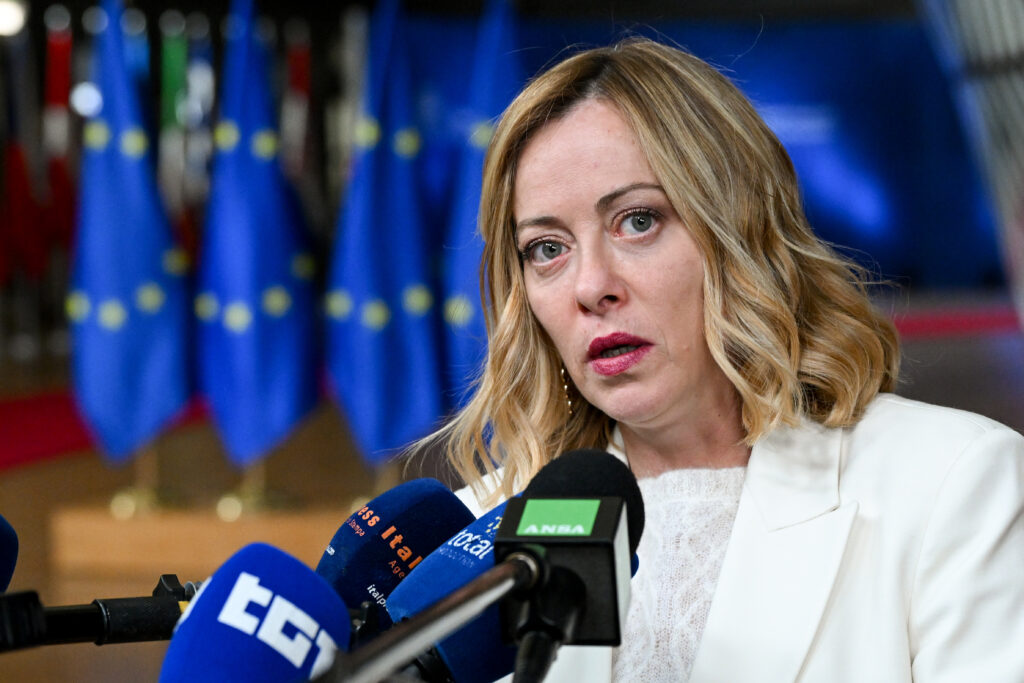Brussels – After weeks of frantic meetings between London and Paris (and online), it appears that the coalition of the willing has finally managed to develop a concrete plan on how it intends to ensure compliance with an eventual ceasefire and, in the long run, the maintenance of postwar security in Ukraine. Not too many details are available yet, but at the heart of the discussions has been the deployment of a “reassurance force” open to voluntary participation by European countries.
The high-level meeting convened today (March 27) in Paris by Emmanuel Macron and co-chaired by British Prime Minister Keir Starmer ended in the early afternoon with a clearer idea of what the former Soviet republic can expect—and what not—from its Western allies once the war against the Russian aggression is over.
Around the table were leaders from 29 countries (excluding the United States but including Turkey), plus EU institutions heads and NATO Secretary General Mark Rutte. EU sources report that the participants remain “sceptical” about Russia’s actual willingness to implement the partial ceasefire it agreed to, at least theoretically, in Saudi Arabia with U.S. emissaries.

In the French capital, the “willing” discussed how to make the French-British proposal to deploy a “reassurance force” in Ukraine “operational and concrete,” with the understanding that the priority must be the strengthening of Kyiv’s army, which will remain the first and most important element that will ensure the security of the former Soviet republic in the long term.
The host announced a plan to deploy troops—provided voluntarily by “several European countries”—to unspecified “strategic locations” when (and if) a peace treaty is concluded. Such troops should act as a deterrent against possible Russian aggression, explained Monsieur le Président at the end of the summit. They will not be peacekeepers, the Elysée Palace tenant clarified, as they will not replace the Ukrainian armed forces and, above all, will not be positioned on the front lines but rather in the rear, holding themselves ready to intervene in the event of a breach of the truce.
After all, it was clear from the eve of the summit, which lasted about three hours, that there would never be a unanimous agreement on sending troops, which remains a particularly contentious issue for many governments. But “we do not need unanimity,” Macron stressed, acknowledging the different degrees of willingness within the coalition.
For example, as widely anticipated, Italian Prime Minister Giorgia Meloni is not up for sending soldiers to Ukraine unless it is coordinated under a broader United Nations mandate. Rome’s idea, according to sources in the Chigi Palace, “is gaining ground” even among other European chancelleries. Meloni also reiterated the importance of working alongside the White House, hoping for Washington’s participation in the next meeting of the willing.

We shall see. As usual, EU states are moving in short order. Spanish Prime Minister Pedro Sánchez advocates creating a European army with troops from the Twenty-Seven, while Poland continues to increase defence spending and aims to train the entire adult male population. Germany and Estonia are reportedly opening up to sending soldiers to Ukraine while stressing that many issues still need to be discussed. As for Paris, Macron announced a new €2 billion aid package for Kyiv last night.
On the other hand, the EU’s commitments are concerned with military supplies and financial aid. There was talk of sending 2 million large-calibre artillery shells worth €5 billion, i.e. what’s left of the so-called “Kallas Plan” (although the knot of funding has not yet been unravelled), of Ukraine’s participation in the joint European procurement promoted by the Safe instrument—the 150 billion put on the table by the Commission under the ReArm Europe plan—and the strengthening of the military training mission EUMAM. Into Kyiv’s coffers should then come 18 billion from Brussels, as the EU share of the 50 billion G7 maxi-loan, as well as another 17 billion from individual member countries.
The best way to support Ukraine is to stay consistent in our objective to reach a just and lasting peace. This means keeping up the pressure on Russia through sanctions.
I will convey this message at today’s Leaders’ meeting on peace and security for #Ukraine organised by… pic.twitter.com/csBYcIbkr1
– António Costa (@eucopresident)
March 27, 2025
Finally, another topic that held sway at today’s meeting was the sanctions against the Federation. Speaking alongside his Ukrainian counterpart during a joint press conference, the French president had stressed the need not to ease the pressure on Moscow, as the White House seems intent on doing.
“Peace through force does not mean removing sanctions,” he cautioned, noting that “their lifting depends solely on Russia’s choice to comply with international law.” If anything, he added, those in force should be strengthened. Also along the same lines were the President of the European Council, António Costa, and German Chancellor Olaf Scholz, who said it would be a mistake to give in to the temptation to soften restrictive measures at this stage.
English version by the Translation Service of Withub







